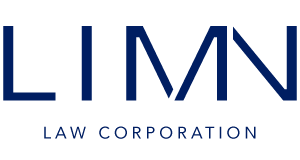Singapore seeks to become a trusted global hub of intellectual property. Recently this year, Trade and Industry Minister Chan Chun Sing said at the launch of IPOS International that intangible assets, including intellectual property, will increasingly drive the next wave of global growth. To equip businesses on how to assess and manage their intellectual property, this article compiles a list of Frequently Asked Questions specifically in relation to trade marks and how to apply for trade mark protection.
- What Is A Trade Mark?
- A trade mark is a word, symbol, design, image or anything that can be represented visually, that is used to indicate where goods and services originate from.
- What Is Trade Mark Registration And Why Do I Need It?
- Many countries including Singapore have laws providing for the registration of trade marks.
- When registering a trade mark, it is necessary to indicate the type of goods and/or services that the trade mark will be used for.
- Once a trade mark is registered, the trade mark owner will generally have an exclusive right to use the trade mark for the type of goods and/or services it is registered for.
- The trade mark will also be included in a database of registered trade marks maintained by the national intellectual property office. Information recorded in such databases include details of the trade mark owner and the date of registration of the trade mark. As such databases are official records, this lends certainty to commercial dealings involving trade marks, such as licensing deals or ownership assignments.
- When third parties use marks which are similar to a registered trade mark for similar goods and/or services, the owner of the registered trade mark may seek the following:
- Injunction prohibiting the continued use of the infringing mark;
- Monetary relief, such as damages or account of profits;
- Order for erasure, removal or obliteration of the infringing mark from goods or materials;
- Order for delivery up and disposal of infringing goods and materials.
- Registration thus affords trade mark owners a good way to protect their investment and branding.
- How Long Does It Take To Register A Trade Mark?
- In Singapore, it takes about six (6) months for a trade mark to be registered.
- After an application is submitted to the Intellectual Property Office of Singapore (“IPOS”), IPOS will take about four (4) months to review the application.
- If there are no issues with the application, the trade mark will be published in a Trade Marks Journal for two (2) months. During this period, third parties may oppose the registration of the trade mark if they are of the view that the mark infringes upon their right. To minimise the risk of objection, a trade mark search may be carried out before any application is lodged to assess the risk.
- If no opposition is raised, the trade mark will be registered and a certificate will be issued by IPOS.
- How Long Does Registration Of A Trade Mark Last?
- In Singapore, a trade mark registration is valid for ten (10) years from the date that the trade mark application was filed. Registration can be renewed every ten (10) years. Effectively, it is possible to own a registered trade mark in perpetuity, subject to diligent renewal of the trade mark registration.
- Common Problems In Trade Mark Registration
- One common issue with trade mark registration applications is that the trade mark is not distinctive enough.
- Distinctiveness is the ability of the mark to ‘stand-out’ from other marks in the same market. For example, a trade mark consisting of the word “love” is not distinctive when used to market jewellery, because the word is commonly used to promote jewellery. Whether or not a trade mark is distinctive is thus also dependent on the type of products or services it will be used to market.
- Another issue is that the trade mark is too similar to another mark that is already registered. In such cases, the trade mark will be rejected as it may be confused with the earlier trade mark. For example, the mark “Activate 2-in-1” was rejected as it was confusingly similar to an earlier mark “Activate” which was registered for the same type of product.
- Before applying for trade mark registrations, it is thus prudent to first carry out a search to determine if there are similar marks which are already on the market.
- Can I Register Trade Marks In Other Countries?
- Trade mark owners in Singapore may file an application through the Madrid Protocol to register their trade marks in countries which are signatories to the Protocol.
- The Madrid Protocol is essential a filing system managed by the World Intellectual Property Office (“WIPO”) which currently covers 122 countries, with membership expected to grow.
- Instead of having to file separate trade mark registration applications for each country the mark is intended to be used in, a single application can be filed through the Protocol to WIPO, which will then forward the application to the intellectual property offices of the designated countries.
- The Madrid Protocol thus offers a cost effective solution for trade mark owners who wish to register their trade mark across multiple countries as part of a regional business strategy.
Key Contacts
If you would like more information on this article or the matters discussed above, you may contact our team below.
Find Out More
Contact us if you’d like to give feedback on any news or insights or if you’d like to get bespoke insights from our team of lawyers.

